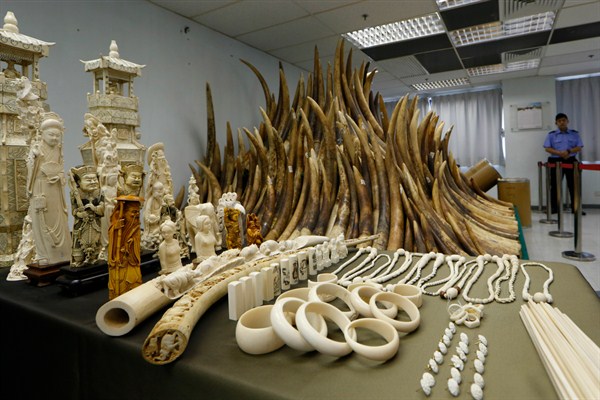On Jan. 1, China implemented a ban on the domestic sale and processing of ivory, following through on a plan it had announced more than a year ago. The move should effectively cut off one of the major centers of demand that has incentivized the poaching of African elephants. In an email interview, Grace Gabriel, the regional Asia director for the International Fund for Animal Welfare, explains why China decided to execute the ban, the likely impact on poaching and the remaining obstacles and risks to ending the ivory trade.
WPR: Why has the Chinese government decided to implement a ban on the ivory trade?
Grace Gabriel: Banning the ivory trade is China’s contribution to protecting elephant populations endangered by poaching and illegal trade. In 2008, the Convention on International Trade in Endangered Species, or CITES, allowed a one-time sale of ivory from African elephants that had died naturally from a few African countries to Japan and China. However, the legal ivory sale created a gray market, where it became impossible to tell which ivory was legal and which was not, confusing consumers and making enforcement difficult. Many consumers mistook market availability of ivory for the legality of the trade, and during that period ivory demand and prices surged, which in turn stimulated increased elephant poaching in Africa.

